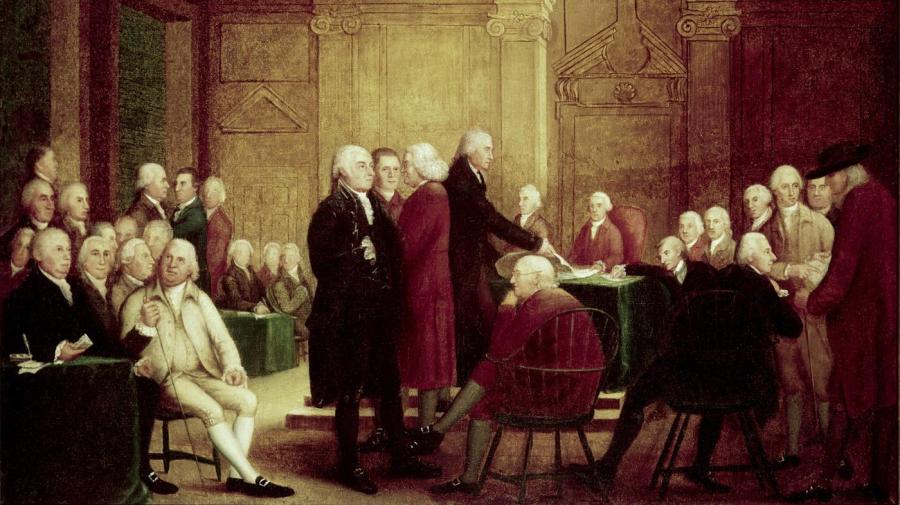What Were the Political Differences Between the Northern and Southern Colonies?

The northern and southern colonies differed in the level of public participation in government and in the religious, social and economic factors that influenced policy. The northern states, particularly those that make up New England, were primarily religious communities. Christianity shaped their law, and in many instances they practiced innovative small-town democracy. The southern states were foremostly economic enterprises in which farming had a major influence.
The northern states were sites of religious refuge for devotees escaping Anglican persecution in Britain. Puritans made up Massachusetts, where the strict moral codes of Puritanism pervaded the law. The Puritan colonists were concerned with creating a righteous society founded on Biblical principles. Thus, their laws regarding moral issues were detailed and severe. Religious leaders had significant influence in local politics. New England politics is also a major contributor to the American democratic tradition. The people in these communities held town hall meetings in which every citizen had the opportunity to cast a vote. The middle colonies like New York were typically royal colonies controlled by royally appointed governors.
The southern colonies were mostly chartered as joint-stock ventures. These colonists were more concerned with making money than building a righteous community. The fertile southern soil was ideal for tobacco cultivation. This cash crop came to dominate politics. When family members and indentured servants were no longer sufficient for tobacco production, slavery became an important institution safeguarded by the government. Virginia is notable for being the birthplace of the first colonial legislature, the Virginia House of Burgesses, established in 1619.





